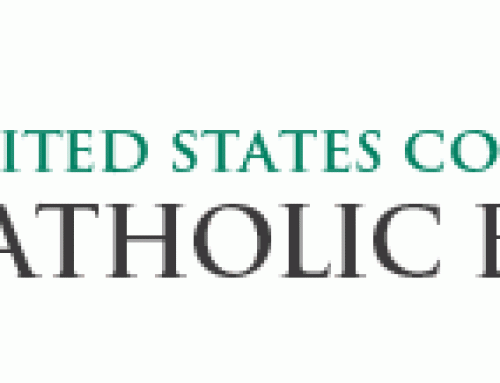Universal health care for the good of humanity
Archbishop Cupich

The Catholic Church’s commitment to health care for all is longstanding. This is because we consider health care a basic human right.
One of our core moral beliefs is that people should have access to affordable health care in order to live a full life. We take our inspiration from the ministry of Jesus, who made healing the sick central to his proclamation of God’s good news. Healing for Jesus and for us is a matter of restoring the human dignity of those who are ailing as well as their potential as creatures made in the image of God.
Happily, many others share this conviction about health care, as I saw firsthand at a recent benefit dinner for the Global Health Initiative. Developed out of the Northwestern University Feinberg School of Medicine, this program aims at addressing pressing health care needs, educating young doctors in global health issues and encouraging the development of primary-care doctors. Since 2008, the Global Health Initiative has funded more than 400 medical students to serve in 35 resource-limited countries around the world.
Speaking about the need for such an organization, Dr. Robert Havey, a founder of GHI, pointed out that it took nearly 18 centuries for the world population to grow from 200 million to 1 billion. Yet by 1910, just 100 years later, the world population had grown to 2 billion. Today there are 7 billion people on planet earth, a threefold increase over just one century. At the present pace, we are adding 1 billion people every 14 years.
“This unprecedented population growth,” Havey noted, “will present global health challenges never seen before, and what we do now will determine the kind of world in which we and our children live in the very near future.”
The Global Health Initiative shares the church’s conviction that every one of the 7 billion people on this planet deserves a chance to live a full and healthy life. Likewise, they share the belief that poor health takes away the ability to be productive. And of course the loss of productivity means loss of work, along with loss of the ability to care for families and communities.
All of this has global implications when it comes to economic and social development. The simple fact is that societies with sick populations tend to remain economically depressed, which further feeds the cycle of increasing illness and poverty.
Consider this bracing statistic: about 60 million people around the world die every year — one-third from infectious diseases like malaria, tuberculosis, HIV and pneumonia, and two-thirds from chronic conditions like heart and lung disease, stroke and cancer. That death toll may not sound all that alarming — after all, it works out to less than 1 percent of the world’s population.
But nearly 1 billion people around the globe don’t simply die but instead they become disabled by illness, a good proportion of which is totally preventable and treatable. This situation limits their ability to improve conditions in their families, communities and countries. These are called the “disabilityadjusted life years” and 80 percent of those 1 billion disabled by illness live in developing countries, making it even more difficult for them to escape the disease and poverty into which they were born.
Many of these illnesses are eminently treatable. Consider malaria, which was contracted by 200 million people in 2010, and was responsible for around 700,000 deaths worldwide. Horrifyingly, 85 percent of those who died were children under 5 years old. Hundreds of thousands of children died from a preventable disease. Is it any wonder that underdeveloped countries that suffer from endemic malaria have a percapita GDP that is just half that of other poor countries without endemic malaria?
The church’s advocacy for universal health care is rooted in the Gospel of Jesus, and it is groups like GHI that help us understand that access to health care for all helps to ensure a high quality of life. People like Havey and his collaborators, along with the young physicians who travel to faraway places to offer health care, are witnessing in their own way to the values of the Gospel and the mission of Jesus, who came into the world proclaiming sight to the blind, health to the sick and good news to the poor.
They remind us that health care is not just another commodity, an optional accessory made available to people if they want or can afford it. Rather, it is fundamental human right whose universal availability affects us all. The sick suffer their own burdens, but that pain does not end with them. It radiates out through their loved ones, their neighborhoods, and indeed across the entire globe.
A society without universal access to health care is not a healthy society. It belongs to our Catholic advocacy of a consistent ethic of solidarity, in which we care for humanity in all stages of life on this planet earth.










